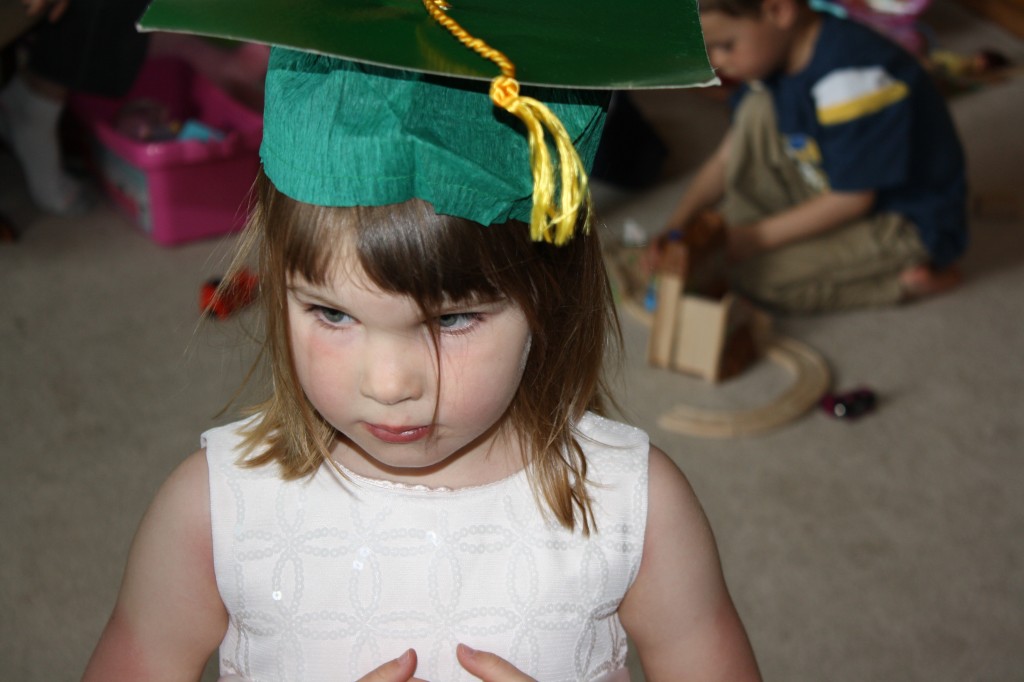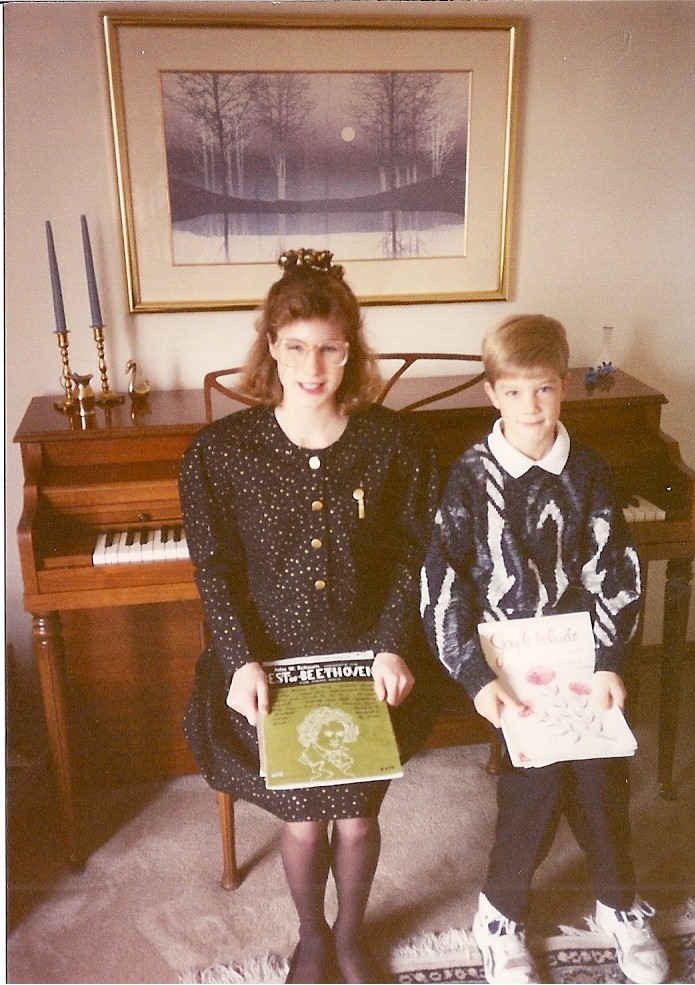Welcome back to the Around the World in Six Weeks Parenting Blog Carnival! Over the next several weeks, Deb of Urban Moo Cow, Jessica of School of Smock, Lauren of Omnimom, Sarah of Left Brain Budda, and I will be writing about our reactions to Christine Gross-Loh’s Parenting Without Borders, exploring parenting practices around the world. We are joined this week by the hilarious Stephanie of When Crazy Meets Exhaustion. For more information about the Parenting Blog Carnival, and future topics, click here.
Join us as we examine how culture shapes our parenting!
This week we are delving into the topic of self-esteem, and how different cultures around the world view the role of parents in shaping children’s self-esteem. Without a doubt, America stands out as a culture that embraces the importance of self-esteem, and possibly overvalues it. In general, many Americans think it is our job to praise our kids, and believe that the development of their self-esteem in fact depends on how much we praise them. Gross-Loh shares some very interesting viewpoints in this chapter, and discusses that this tendency to inflate our children’s self-esteem can actually “undermine the development of their resilience.”
Wow. For a long time, research showed that praising children helped them to build confidence, and in effect made them more successful. That school of thought has since been re-evaluated, and we as parents are left thinking, “Here I thought I was supposed to help my child feel good about themselves, and now I’m supposed to not praise them?” Kind of like the whole “eggs are good for you, wait, now they’re bad for you” thing. Frustrating!
One of the points that stood out to me was the fact that in America, kids have more confidence in their abilities than other countries, Japan in particular, but they perform significantly worse in all areas that they presumably believe they excel in. In other words, many kids think they are above average when in fact, they are not. There is noticeable disparity between the perception of excellence and actual performance.
I have had some experience with this in the past few years, or more specifically, with parents who seem to have an overinflated sense of self-esteem on behalf of their children.
When our oldest daughter was in preschool, my husband and I began exploring our options for the upcoming kindergarten year: Should we stick with our neighborhood school? Open-enroll her in a “better” school? Stick with Montessori? We were overwhelmed, and attended a parent meeting at our Montessori Preschool to help parents “navigate the maze of educational options.”
I’m sure the meeting provided some helpful hints, but sadly, the only thing I can remember is that no fewer than five parents inquired about the Gifted and Talented, or “GT” programs available throughout the school system. Shawn and I left the meeting making snide remarks about how everyone’s children were gifted. When we visited a school the following week, at the end of the tour the principal asked the parents if anyone had questions. A woman’s hand shot up, “When can we test our son for the gifted and talented program?” My husband and I smirked, and somehow managed to avoid a burst of inappropriate laughter.
I’m certain some of these people have legitimately gifted children. However- the number of parents chomping at the bit to enroll their children in the GT program was laughable. We think our daughter is exceptionally bright- she is an avid reader, has remarkable writing skills, and she possesses striking emotional and interpersonal intelligence. But I don’t think she qualifies for the GT program. Does that make me an unsupportive parent, or am I just being realistic? I have noticed that I take more of a quiet pride in my children’s successes, and even find myself modestly deflecting praise when another adult says something complimentary about them. I still value humility, and am put off by the overtly boastful attitude some parents present.
I am conflicted when it comes to assessing my own self-esteem. At times I feel like I am too “full of myself,” that perhaps my ambitions are nothing more than an overinflated sense of ego- delusional even. And other times I can see my insecurities and feelings of inadequacy practically seeping out of my pores.
I remember being very self-conscious as a child, painfully shy at times, and constantly worried that I had no idea what was going on. And other times- I performed solos in choir, or acted in a play, or won a writing contest- and I felt as though I might burst with pride. Polarizing, right? This has continued into my adulthood; to illustrate- I think I am quite gifted at self-deprecation. See what I did there? A little bit of both worlds- arrogance and humility, blended together seamlessly. OK, moving on…
I struggle with my desire to protect my children from the same anxiety and lack of confidence that I experienced as a child. Naturally, I want to bolster their spirits, particularly my sensitive eldest child. But there has been a lot of hype lately about how it is better to praise the efforts than the outcome. I try to provide feedback such as, “I can tell you tried your best with that!” or “You’ve come a long way with your bike riding!” or “Your hard work really paid off.” Gross-Loh shared that many of the countries whose children outperform Americans emphasize effort rather than praising innate traits. They practice a growth mindset, believing that perseverance and overcoming struggles are more valuable than teaching children that they are “special.”
I avoid empty compliments, especially if they are not true. Forgive me, but my daughter is not very coordinated, and she kind of sucks at drawing. (Calm down, calm down… I’m mostly joking.) Here’s the thing- I am tragic at all sports and I have always been a terrible artist. So I can say to her, “I love the colors you chose!” or “You worked so hard on that picture- it means a lot to me that you gave it to me!” or even “Nice hustle!” (That’s what you say during soccer, right?) I can also remind her that not everyone is good at everything, and she has plenty of other talents.
But I’m not going to avoid praising her simply on principle. There are plenty of times when accolades are appropriate- but I try to save them for meaningful moments. Today on the car ride home from camp, my daughter told me, “Jeff was crying today because he didn’t have anyone to play with. So I played with him because I remembered when I was sad last week.” I responded to her with, “Izzy, you are a kind, loving friend. I am proud of you for being so nice to everyone.” I also praise her for her creativity when it comes to writing songs, performing dances, or telling stories. Because these are things that she is legitimately good at.
I do notice, especially when it comes to my 21 month old, who has no known attributes to speak of, (Kidding. She’s definitely going to be in the GT classroom in 2016.) that I frequently fall into the mindless “Good job!” trap. I’m really trying to implement the “praising her efforts” protocol, and reduce my effusive affirmations for moments in which she is really doing something remarkable, or at least more substantial than pointing to an animal that she has been able to identify for over a year.
One of the benefits of reducing even positive labeling and instead celebrating effort is that children are less afraid to fail, and thus become more well-rounded. I can see the effect this has had in my life; early on I became very attached to my “niche” and rarely ventured out of it. I am a rabid perfectionist, and I simply do not engage in activities in which I do not excel. Sad, right? For instance: sand volleyball. I don’t care if it is a friendly match on a holiday picnic or a bunch of drunk girlfriends on a beach in Mexico. I will not join you in a game of volleyball. Because I suck at it.
I would love to think my children will develop more “grit” than I did, and push through their challenges rather than getting frustrated and giving up. And that is why I will try to be mindful of the ways in which I praise them, and try harder to celebrate their efforts and improvements.
One final thing that struck me about this chapter was the following statement.
If, as a child, you become used to being the center of attention and believe you deserve to be special, you compromise your ability to engage in the healthy give-and-take that human relationships require.
Yes. And that is why I abstain from the “my world revolves around my children” philosophy that some parents have adopted. Well, that, and I am innately more selfish than some! I truly believe it is detrimental to my children for them to maintain the belief that they are the center of the universe, and even the center of the family. Ayelet Waldman was blasted eight years ago when she wrote an essay for the New York Times, famously stating that she “loved her husband more than she loved her children.” I’m not sure many women would line up to follow suit, but her point was that the spousal couple should be the center of the family, not the children. Whether or not you believe that assertion, I think there is validity in teaching our children to “know their place.”
Self-esteem is a loaded topic, and there is a wide spectrum of philosophies on how children should best acquire it. What do you think? How does your family help build confidence and self-worth in your children?
Be sure to check out the other posts this week:
From Jessica of School of Smock: I Can’t Stop Praising
From Sarah of Left Brain Buddha: Self Esteem Isn’t Selfish
From Lauren of Omnimom: I’d Say He’s Average
From Deb of Urban Moo Cow: Intelligence or Resilience
From Stephanie of When Crazy Meets Exhaustion: Don’t Let Your Kid Become An Arrogant A-hole













Wow, I’m stuck on the “Good job!” thing. I say that all the time thinking I’ve been saying the right thing. Gah! I guess I feel like I’m praising their efforts when I say it…I’m thinking back now to instances…thinking…no, I haven’t been praising their efforts. I’ve been praising the outcome. Crap. I’m going to really put some thought into this tomorrow when I interact with the kids. I’m going to try to encourage them in their effort. Great post! Totally got me thinking.
Great post Stephanie! I think you captured so much of the back-and-forth thinking we have on this as parents. As I wrote in my post, I strongly feel that self-esteem and praise are important, essential for our children. The problem isn’t praise per se, but disingenuous praise. The everyone-gets-a-trophy-even-though-we-didn’t-win-a-single-game praise. As I said in other Carnival comments, my take is that with food, and even sleep, we talked about balance, but I think the dangers of low-self-esteem are worse than the dangers of praise, and if we are going to err, we should err on the side of our kids hearing that they are awesome. Even if they’re not perfect. because they’re not perfect.
You are the third person in the last month to bring this topic up. My dad just made me buy a book on Amazon about this exact thing, and my husband told me about an article he read last week about it as well. I find this fascinating! I admit I am guilty of over-praising, but I can see how it can lead to children being fearful of trying to do new things that are hard for them as they fear they will fail and not get the praise they are so used to getting. This is definitely food for thought for me.
Oh, and I have a friend who is forever telling everyone within a 50-mile radius how gifted her daughter is. She was just diagnosed with a learning disability, and when she called me right after she got the results, she said, “it’s just that she’s so gifted…” and then said that had the therapist not said that her daughter was gifted, she didn’t know what she would’ve done. That made me sick to my stomach. When did our kids stop being enough just as they are, without all of this “she’s gifted!!!” BS to justify their shortcomings???!
I hear you… and I too am guilty of over-praising. I am trying to be more conscious of it, but with toddler’s, it is so hard. It just comes naturally. And honestly, when they are that little- I don’t think it’s the worst thing in the world. But there comes a point when they get older, when you have to do a little better I think.
I really “learned” a lot from this post. I remember being horrified that a school secretary told me her husband came before her children. However I do see the importance of spousal centrality which really does provide the “core” for a family. Great post!
I think that we should encourage kids to be who they are, within limits of good behavior, etc, of course. Accept the imperfections as they define us.
Great philosophy!
Well Steph, you’ve hit my topic. I have a Masters in Gifted Education and taught learners k-8 in Science for 14 years. One of a teacher’s challenges, of which you so aptly express, was the constant onslaught of parental insistence that their child was ‘gifted’. By American educational standards- all learners do not meet the criteria, however, many children that ARE gifted are never identified, or are not identified immediately. My pet-peeve was always that there was nothing about gifted education, the theories, the practices, the curriculum, that wasn’t a ‘best practice’ for ANY child! Let’s raise the bar in the classroom for all learners, before we give manufactured praise for general expectations.
No way, Cheryl! Did I already know that? Did I forget? I think you make an excellent point- thanks for sharing your wisdom and expertise!
As always, Stephanie, a wonderfully written post. I’m with A Pleasant House in terms of raising the bar for all kids. Know what the math standard is for kindergarteners in Florida? That they can count to 20. That’s all that’s expected of them. It’s one of the reasons I love the Montessori approach and why my 7 yr old has been and is still in a Montessori environment — he can go as long and as deep in any direction and isn’t stymied by being held back by the class if others aren’t moving as quickly as he is … and can spend extra time on a concept that might be more challenging for him to pick up.
I really enjoyed this article. The comment about loving your spouse more than your children is something my husband and I have talked about several times over the past few weeks (we just had our first baby together). Our children are a product of our love and if we place them before each other, we weaken the entire family. While I want bold, confident children, I also want them to be humble and grounded. Nothing hurts worse than thinking the world belongs to you and then finding out you were lied to.
Thanks, Sissy! I appreciate your comment- thanks for sharing your perspective! It sounds like you have the right idea…
Yes, yes, yes. I think you and I are very much on the same page about this or, at any rate, we both have kids who suck at drawing and know a ton of parents who think their kids are gifted when they aren’t ;). And despite valuing honesty and objectivity and modesty, I too praise when praise is merited and I can find the beautiful in the piece of art that is otherwise a horror show (literally and metaphorically). The bottom line for me is that there is a way to bolster confidence without over-inflating it. Nice post!
Yes, after reading your post, I agree that we are definitely on the same page! I loved your post as well!
I can absolutely see how over complimenting a child might encourage them to have confidence in something they shouldn’t. (For example, those kids who try out for the singing competitions on TV who can’t sing at all. Someone must have told them they were wonderful, probably their mothers.)
Like you, I am a big fan of complimenting kindness, patience, humility, hard work and beauty. (<–just kidding.) I have a hard time when people 'ooh and ahh' over our pretty little girls, since I'm trying to keep emphasis away from appearance. Tricky in this culture for sure.
The waiting list for Parenting Without Borders at the library is ridiculously long! Might have to buy a copy to read on the plane to Blogher (because what else would I do with my time away from the kids but read about them?)
Had to laugh at the beauty bit! 😉 I know- I try to steer away from complimenting my daughters’ appearances, though sometimes I slip up after I have put my toddler’s hair in pigtails or something, and squeal, “So pretty!!!” like a dummy. It happens.
And yes- it is sad but true. When we are away from our kids, we can’t help but talk about them or read about parenting! Do it- buy it! I’d love to hear your thoughts…
In my training, I was told to incorporate competition into my classroom activities because research showed that boys are more engaged when competition was present. When I tried, I was shocked to see how many meltdowns happened because certain children, who were used to being the “best” at everything no matter what their performance, could not handle the idea of their team falling behind or answering a question wrong. This topic is tricky to navigate because parents who heap on the praise can sometimes also be parents who are used to having praise heaped on them and when they get a sense that perhaps their parenting is being questioned, well… I don’t know if I could do it but I think you did a great job.
So interesting about the competition issue!
I love hearing your perspective, Jean! You always have such good ideas and insights…
This is such a conundrum for me. It’s like we have to find just the perfect balance or we will irreversibly screw up our kids. I have 3 daughters, so I particularly struggle with this when it comes to body image. Of course, I think they are all beautiful. However, if I am constantly saying “you’re pretty” and emphasizing how they look, will they become too self-concious (like I am)? Will they think I don’t love them if they don’t look like supermodels?? It is most definitely a fine line to walk!
Oh, Lisa, you summed that up so well! I am in your boat, with two girls. I try so hard not to emphasize their appearance, but sometimes it just happens. It seems ingrained to make comments like, “You look so pretty!” and stuff. Balance, ack! So hard to find…
I’m dyin’, man. I just wrote the longest comment EVAH and my Internet spazzed and I lost the whole darn thing. In a nutshell:
I agree with and high-five you for: I still value humility, and am put off by the overtly boastful attitude some parents present.
Before I had kids, I read Waldman’s article and thought she was nuts. It wasn’t until after I birthed humans that I realized how important my relationship with my husband truly was, especially as parents. We’re a team.
Blah. Sorry this sucks. I hate Comcast. Carry on.
That sucks! How frustrating. Thanks for the high-five. I know- Waldman’s article is provocative, but she makes some great points. So happy you joined us this week!
I’ve said it before but I admire the clarity of your thought and how you manage to be analytical in your writing without losing the warm and personalized tone. It was a fascinating choice of topic that hit home for me. I completely identify (surprise?) with your sense of duality when it comes to your self-perception. A lot of it stems, I’m sure, from the endless praise I received as a child. My husband was the first who exposed me to the idea of praising for effort rather than accomplishment and occasionally withholding praise, or at least the unreasonable ego inflating one. I was taken aback when I heard it because it stood against everything that symbolized my perfect mother to me, unconditional over the top support. But I get it now. I haven’t implemented my husband’s advice, mostly dismissing it and I’m afraid I’m starting to see signs of fear of failure in my older son. Reading your post opened my eyes to this subject and I am going to change my approach. Thanks, friend! 🙂
Oh, thank you. I admit, I sometimes succumb to the unconditional, fierce, over the top praise. I can’t help it. But I am trying to be more aware of the balance between effusive, mindless praise, and praising effort. I hope it makes a difference, and actually helps to improve the self-esteem and well-roundedness of my children…
Stephanie,
I am so not surprised that you were in the GT program and it made me laugh at how many times you heard other parents ask about it in your kindergarden research! HA. So. This whole thing. I haven’t read the book. But. While I tend to agree – in theory – with the idea behind the quote about feeling like a kid deserves to be special (because when it comes to ability, I think the important thing to note is that abilities do not define who we are), I actually do believe that every kid DOES deserve to feel special. Especially by his or her parents. With such huge bullying and rampant depression – I (again, I’ve not read the book) feel like Christine is missing the point. YES, America has a problem – but I think more of it lies in the system than in our parenting techniques. Parents should praise their kids but also be realistic about it. The fact that a bunch of parents asked about the GT program is because our society has actually created a school system where it’s best to be in GT or in Special Needs (direct quote from a school psychologist I met with recently). That’s just wrong. Standardized testing? Wrong. So much in the way we educate our kids is wrong. I don’t think it’s mom and dad saying “good job” that’s the problem. I just don’t.
Ok I’m getting all worked up now and maybe I should just buy the book and join this carnival thing…
I would LOVE it if you joined the carnival thing. And I think you make some very valid points about the school system, and I wholeheartedly agree about testing. I still continue to praise my girls, and make them feel special all the time. But I try to temper it with realism and make sure that my praise is meaningful. I am also trying to foster that whole “work hard for your goals” bit by focusing on the effort. But yes, there is a lot that is wrong with our American system. For sure.
This is terrific, Steph — frank and honest evaluation. I, too, struggle with the concept of the G&T programs — in New York it is a very bizarre world. We are not at that point, but I read an article recently (I can’t remember where) about how crazy the process is. I just felt my stomach sinking.
Is it weird that I don’t WANT my child to be in the G&T program? I just want him to do what he likes and is good at, without a lot of commentary and labeling. I don’t think you are a bad parent for not thinking your child is extremely gifted… that is a less than 1% category that today’s parents are blowing out of proportion in a bid to give their beloveds a “leg up” in our overly competitive (and yet strikingly mediocre, it seems, when compared with the rest of the world!) society.
{stepping off soap box}
Good post
Thank you, Deb. So much. And no- it’s not weird that you don’t want your kid to be in the GT program. I don’t either- unless they were so freakishly gifted that it was the only way to make them feel “normal.” I love it when you are on a soapbox!
These days, especially if you have ever been on a parenting message board, every child is gifted! 😉 I tend to go the route of not overpraising just for the sake of praising but rather trying to praise my girls for effort!-Ashley
YES— this—> “parents who seem to have an overinflated sense of self-esteem on behalf of their children.”
Okay, going back to read the rest. Just had to stop and applaud this point.
This was GREAT. You’ll appreciate this quick story. When I was a 9th grade English teacher, the high school where I taught allowed kids to register for “honors” English on their own. Of course I say “honors” because where is the honor???? What happened was that any child who had ever finished an entire book rather than reading the Cliff Notes registered. I taught “regular” English, which wasn’t really below average actually. It was kind of a mess. You need that variety in a classroom.
Thank you SO much, Nina, and I greatly appreciated your mid-post comment! I love that you did that, and often feel compelled to do that when I am reading a post where something jumps out at me that I don’t want to forget! And your story was perfect- and I agree about the variety in the classroom. Thanks so much for stopping by!
I loved this. When I was 10, my school put me in the gifted program. At first, my parents were excited. I swear to you, the entire planet knew their kid was gifted. At dinner after my first day in the gifted class, my dad asked what we did. I’m pretty sure he thought we were all putting together our own theories about quantum mechanics or writing our first 1,000 page novels. Sadly, the truth was we made houses out of toothpicks.
So that was my last day in the gifted class.
My parents reasoned that if I was that smart, I’d probably be better off mastering long division. I’m sure there are many good things to say about gifted classes. But not everyone belongs in them. I certainly didn’t. You should have seen that toothpick house. What a mess.
My memories of the GT class were not all that impressive either… Hmm- what’s up with that? I wonder what it’s like these days… Thanks for stopping by and commenting!
This is such a slippery slope. I want to disagree, because I don’t like being told what to do 🙂 But she’s right, and it’s not her the research was there first. I try with Isaiah, but sometimes he wants me to actually say the words “Good Job!” He will say “Mommy, didn’t I do a good job?” If I say “You worked really hard at that!” I think he will feel like I don’t think he did a good job, because he is specifically asking me that question. I know it is silly, but it happens more often than not. It is a slippery slope, basically self fulfilling. I am working on the balance because at 7 I feel like this is the time. It’s now or never!
I enjoyed this post immensely. I remember as a child, asking my mom who she would choose if she had to pick between us kids and our dad. Without hesitation she said she would pick my dad. I was shocked and offended, of course, but after the smoke cleared, I remember feeling safe. My parents were NEVER splitting up, because they put each other first. I don’t know if I would break the news to my kids that bluntly, but I want them to know that I put my husband first, but it’s not because I love my kids less. This isn’t always easy, since his needs are quietly simple compared to my kids’ loud and urgent demands.
Well put, Amy. Thanks so much for stopping by and sharing such a thoughtful comment…
This is a really interesting post. I haven’t read Gross-Loh’s book, but I have read other writers who say similar things about over-praising and the dangers of high self-esteem – Alfie Kohn for example.
You might be interested in “Self-Compassion” by Kristin Neff. It’s a really good book and touches on several of the points you raise here. For instance, she says that we can’t all be above average all the time, but that’s what everyone thinks they (or their kids) should be. She also points out that self-esteem tends to desert us when we need it most: when things don’t work out how we’d like them to (when we mess up.) I love her distinction between self-esteem and self-compassion – the former emphasizes the how we are different to (better than) others, so creates a sense of separation, and the latter emphasizes how we are similar to others, so creates a sense of connection. (I did a review of Neff’s book on my blog if you’d like to read some more about it.)
My feeling is that we should forget about trying to get it “right” and parent from intuition instead. Then when we are bowled over by what our kids do we’ll tell them so with genuine awe instead of with a feeling that we should be doing it, or because we are trying to undo mistakes that our parents made with us. This is of course, easier said than done, but I know that when I do parent that way it’s far more effective and satisfying than when I try to parent by someone else’s rules.
I appreciate the HARD WORK that went into this post, Stephanie! (Wink!…but really, it was great.) And, I too count one of my deepest fears as playing sports in public.
I think it is so important to praise for hard work. My son is a toddler, but I am trying to implement this. Actually, ever since I learned about this over-use of praise back in my Ed Psych days, I thought about it most in regards to my husband! Ha! From an early age, he was always praised for being gifted. But he didn’t do diddly-squat in school–he didn’t have to. I, on the other hand, was above average in reading, writing, and any creative subject, but in math….I had to go work with an aide! It was SO hard for me to grasp those concepts, and I often cried over my homework. But, I worked hard, earned good grades, took some AP classes, loved college, earned tuition scholarships for my GPA almost every semester, and earned a B.S. degree in Art and Geography Education. My husband reached college, and failed 4 classes. The genius! His parents were outraged. How could this happen?! He had to painfully learn how to study for tests, finish homework assignments, and finally had a decent enough GPA to get into a grad school program. Now, he’s in a Doctorate of Physical Therapy Program, where everyone in his classes were considered “gifted”. Haha, that’s humbling! It was not an easy road for him. His parents still talk about how smart he is. I just want to roll my eyes, not because it isn’t true, but because he did nothing to deserve that trait–he was just born with it! He didn’t achieve it or even chose it! So, even with my husband, I praise him for his effort: “Babe, you busted your but getting ready for that exam. You’re the man!”
Thanks for such a thoughtful comment, Amy! I agree that it is so important to praise the effort! Glad you stopped by!